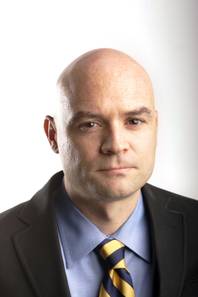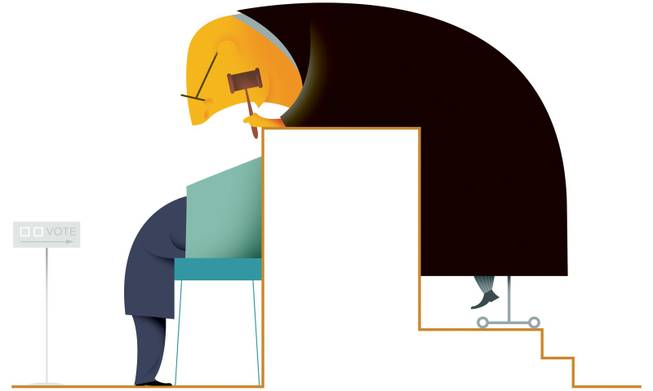Sunday, Oct. 28, 2012 | 2 a.m.

J. Patrick Coolican
The election of judges is an utter farce.
Perhaps my favorite piece of data in support of this assertion is that in the 2010 election, 466,000 voters in Clark County cast their vote for a candidate in the U.S. Senate race, while about 360,000 voters made a choice in the countywide judicial races. So, 100,000 people took a pass in the judicial races.
I was one of those people. In my defense, I had been living elsewhere until a week before the election, but still, I realize it’s shameful. After all, judges make decisions that have huge ramifications for the lives of victims and the accused in criminal and civil cases.
Yes, it’s ridiculous that I’ve at times joined tens of thousands of other Nevadans and skipped a judicial race or two. I work at a newspaper for Pete’s sake. I've exhaustively covered elections, though never the judicial races. Still, one would think I would have the resources and the time to choose intelligent, well prepared and evenhanded judges.
The problem, however, is that it’s never been clear to me how to make a good decision. In political races, the political party stands as a shorthand, albeit an imperfect one, for the person’s beliefs. Then, you try to get a decent sense of the candidates from TV debates and interviews, newspaper profiles and their websites. No such luck with the judges, who are nonpartisan and receive scant media coverage, other than editorial page endorsements and brief write-ups in voter guides.
Plus, elected officials are enacting policies that you favor or oppose. Judges, on the other hand, are making rulings based on arcane points of law about which non-lawyers like myself know next to nothing. It’s like electing a water engineer. Where to even begin?
This week I set out to put myself in the shoes of the average voter and try to determine how to pick a judge.
I called some attorneys. None would go on the record to tell me the best candidates and most wouldn’t go on the record to talk at all.
This is certainly understandable, but it points to an obvious flaw in the election of judges — courtroom lawyers are the people in the best position to offer expertise but are afraid to speak publicly, lest they hurt their client’s chances. They said they spend a lot of time during election season answering queries from non-lawyer friends and family about whom to vote for — more evidence that most of us are totally in the dark.
Don Campbell, a former federal prosecutor and one of the best lawyers in town, did give me a useful piece of advice: Go with judges who have some experience as litigators, meaning they’ve tried cases in front of judges and juries. Otherwise, there’s a good chance they’ll have no clue what they’re doing. This is actually pretty rare, a tiny minority of attorneys.
Campbell said there are some excellent district court judges, but then added: “It’s frustrating to appear before a district court judge who has no conception of the rules of evidence, or the rules of civil or criminal procedure. It’s appalling. The client says, ‘How did we ever wind up with this judge?’ I say, ‘Well, they’re elected.’ ”
Of course, there’s an alternative, and you can witness it right down the street at the federal courthouse, where the judges are appointed by the president and confirmed by the Senate.
“I think everyone would universally agree they are smarter, better prepared and make better rulings,” an attorney said of federal judges.
I could write an entire column about how unseemly it is for judges to be calling lawyers who appear before them and asking for campaign money, but let’s leave that aside and return to our decision-making.
The best piece of advice I received was from an attorney who told me the only way to really make a decision about an incumbent judge is to sit in his or her courtroom for a day or two and witness their preparation, intelligence and temperament.
A more thorough vetting would entail reviewing trial transcripts, the attorney told me — mostly kidding, I think. I’m sure the voters will get on that pronto.
Let me close by returning to the 2010 election. The voters were faced with Question 1, which would have moved Nevada to an appointment-election hybrid system. The measure lost handily.
Hilariously, 432,000 voted on the question, which was about 70,000 more votes than in the typical judicial race. So people were very interested in their right to vote on judges, but not particularly interested in actually voting in the judicial races. And, I have no doubt that many people voted for their right to elect judges — dammit! — but then didn’t vote in any of the judicial races.
So, who should you vote for?
Here’s a first for this column: I’ll admit I remain confounded and have no opinion.


Join the Discussion:
Check this out for a full explanation of our conversion to the LiveFyre commenting system and instructions on how to sign up for an account.
Full comments policy